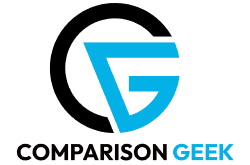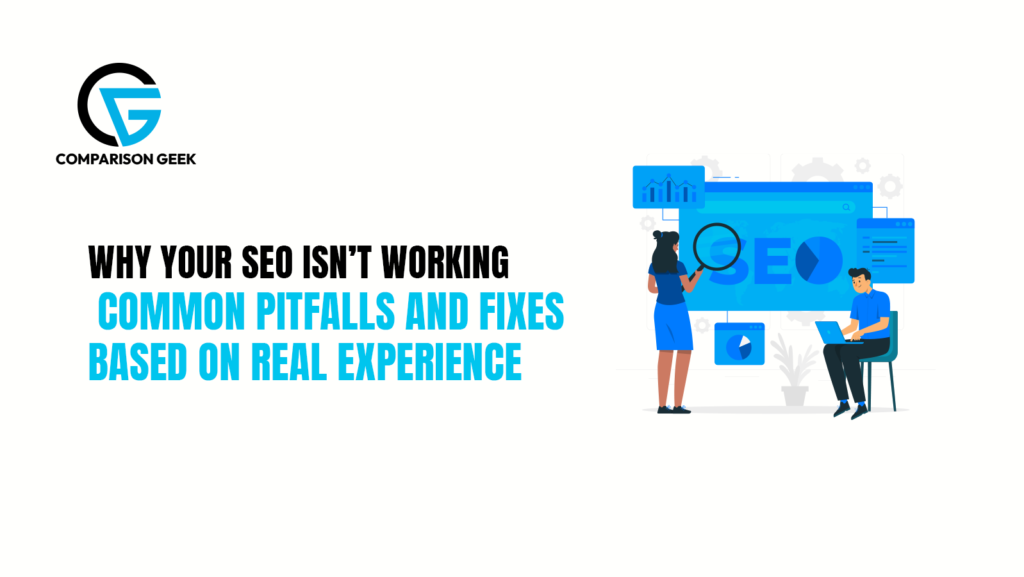Most people have invested a lot in SEO and have not quite gotten the results they expected. This means there is much frustration when ranking doesn’t grow, or traffic is not increasing. Such experiences frequently are exacerbated by the fact that SEO is very tricky, and numerous common mistakes can cause pain. In this article, we are going through some of the most common SEO mistakes that we, through personal experiences and working with clients, have come across. We also give simple, actionable solutions that will help you avoid or correct these common mistakes.
Table of Contents
Toggle1. Lack of Keyword Research:
The Problem:
Maybe the biggest mistake in SEO-again and again we see not doing keyword research properly. Some people skip it altogether, while others utilize the wrong keywords altogether; they’re totally off the target of what their audience is looking for. If you don’t target the right keywords, then your content’s gonna never appear in the search results that matter most for searches.
The Cure:
Invest time in keyword research to understand the needs of your audience. Then use tools like Google Keyword Planner, Ubersuggest, or Ahrefs to get relevant keywords that have good search volume and also low competition. Long-tail keywords are longer, more specific search terms that help rank more easily with a more targeted audience.
For example, instead of targeting “shoes,” target “best running shoes for beginners.” That’s much more specific and thus more likely to attract people ready to buy.
2. Overlooking Technical SEO
The Problem:
Technical SEO: The sections of SEO that don’t have much to do with content, for example, how fast your site is, or at least mobile-friendly, and crawlable. This encompasses how well a search engine can read over your site, which I’ve found on countless sites, with great content but terrible technical performance which pushes them way back from good rankings.
For example, one client had a very slow website that was not mobile-friendly. They had good content on the site, but rankings just weren’t all that great because the site loaded slowly and was hard to use on a mobile device.
The Fix:
Get your website technically right. Here are some key things to focus on:
- Site Speed: This should be measured using tools like Google Page Speed Insights. All recommendations that the tool will give need to be implemented to make a site fast. Compress large images, remove unused plugins, and enable browser caching.
- Mobile Optimization: Since mobile-first indexing will soon prevail, Google will focus on the mobile-friendly site. A responsive website, which is termed to work well with any device from your smartphone to your tablet.
- Crawlability: Make sure the search engines can crawl your website easily; submit a sitemap and correct broken links or errors in the robots.txt file.
3. Not Updating Content Regularly
The Problem:
We all have seen the pages whose content is outdated and holds no value for any business anymore. SEO is not like a “set it and forget it” affair—search engines love fresh, updated content. Old, irrelevant, or not optimized for current search trends on a website can be harmful to your rank.
The Fix:
Periodically refresh your content. Review older blog postings or pages to make sure they still apply. Add new information, update images, and change statistics or facts that have changed. This informs search engines that your site is live and continues to offer users current value.
For example, one of our clients had many old blog posts. We updated them with new data and optimized them for current keywords, resulting in a significant increase in traffic and improved rankings. For more insights into how to effectively increase traffic, check out our case study on How We Improved Organic Traffic by 50%: An SEO Case Study.
4. Keyword Stuffing
The Problem:
Others try to stuff as many keywords as possible into their content in hopes of ranking better. This is called keyword stuffing, and it can blow up in their face. Not only is it hard to read, but search engines like Google can penalize your site for keyword stuffing, and your rankings drop.
The Fix:
Pay attention to the organic placement of keywords. Use your target keywords in titles, headlines, and in the very first paragraph, but don’t overuse them. Write as naturally as you can while giving your best impressions about usability and readability at a search engine level.
One simple rule to adhere to is to create your content first and then go back and throw in the keywords where it makes sense. This way, your content stays user-friendly yet still search-engine optimized.
5. Ignoring Backlinks
The Problem:
Many organizations only focus on the importance of on-page SEO, forgetting all about the value of backlinks links that other sites give to yours. Other site links to you are basically the most powerful ranking factor a search engine has because they imply that some sites trust and value your content. Unless you have enough good-quality backlinks for your website, you can expect your SEO performance to be at risk.
The Fix:
Backlink-building strategy: Reach out to other similar websites and offer to write a guest post or ask for a mention of your content. Develop shareable, well-written content that people would actually want to link to, such as the guide to infographics or research data.
To one of our clients, we concern ourselves with acquiring backlinks from authoritative sites in the niche. Over time, this helped to rank them better and increase their organic traffic considerably.
6. Not Tracking Your SEO Progress
The Problem:
Most organizations don’t track their SEO efforts, not knowing what works and what doesn’t. Without tracking, it is impossible to know which ones are working and which ones need adjustments.
The Fix:
For example, Google Analytics and Google Search Console give you an idea of how your website is doing. Monitor some major metrics such as organic traffic, bounce rate, and keyword rankings. The more frequently you review your data, the better you can make decisions as far as what SEO strategies you should continue and where you should improve.
We also had a client who was not tracking SEO performance so had no idea if the effort was paying off. Google Analytics and Search Console were set up for them, so they saw great improvement in traffic and made data-driven decisions to further optimize that site.
Conclusion
SEO is a very tough task, but for sure, by avoiding common mistakes and adopting the best practices of SEO, one can definitely push his site toward the top rank. Besides, there are many ways to boost your ranking and bring more visitors to your website proper keyword research and content updates to technical SEO and backlink building.
In case you haven’t succeeded with SEO so far, now might be the time to retrench and see what went wrong. Get back these common errors using solutions we compiled, gleaned from real experience; this will get you closer to better rankings, and fuller success with more organic traffic. Now, fine-tune your approach further and remember that SEO is not done overnight but is something that needs constant attention and adjustment.


